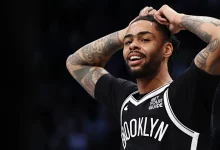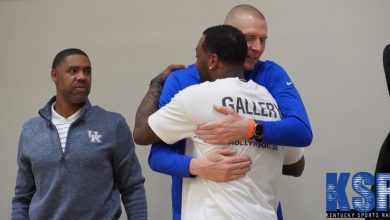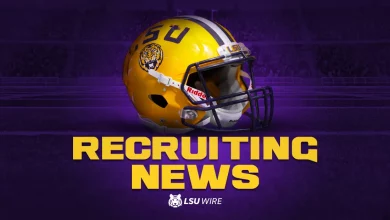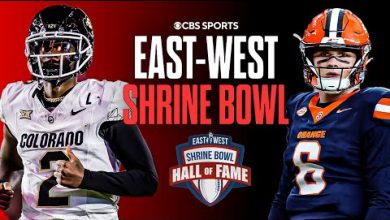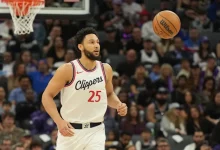The Most Pivotal Question Miami Must Answer in 2025
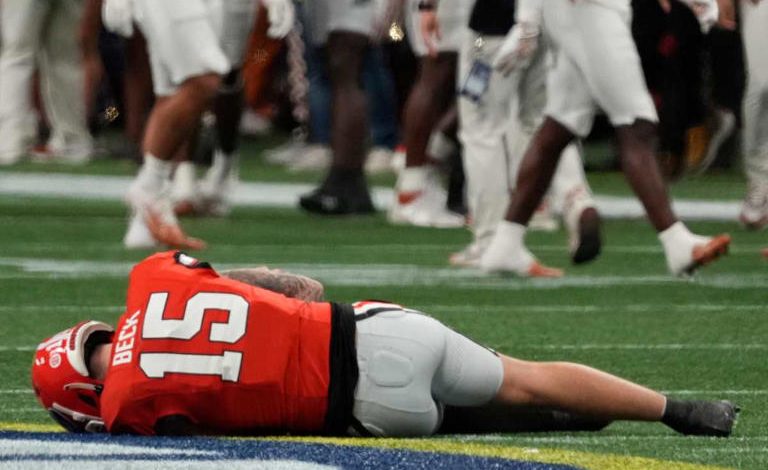
The Most Pivotal Question Miami Must Answer in 2025
The University of Miami Hurricanes have a storied history, with an undeniable legacy of championship-winning football. From the dominant years under legendary coaches like Howard Schnellenberger, Jimmy Johnson, and Butch Davis, the program has stood as one of the most feared and respected teams in college football. However, in recent years, the Hurricanes have struggled to find consistent success and relevance in the ever-evolving landscape of college football. Despite being a major power in the sport’s history, Miami has faced challenges in terms of recruiting, coaching stability, and on-field performance.
As we approach the 2025 season, one question looms larger than any other for the Miami Hurricanes: Can Miami Football Reclaim Its Championship Glory in the Modern College Football Era?
The answer to this question will define the direction of the program for years to come. While there are numerous factors that contribute to a program’s success, this central question can be broken down into several key sub-questions that Miami must answer in 2025. These elements are pivotal not just to the success of the team in the coming seasons but also to the very future of the program.
In this article, we will explore the various facets of this question, how they relate to Miami’s historical context, and why 2025 represents a critical year in the program’s bid to return to elite status.
A Historical Legacy: The Pressure of Miami’s Past
Miami’s history in college football is one of extreme success, yet it also comes with a heavy weight of expectations. From the mid-1980s to the early 2000s, the Hurricanes were an annual powerhouse, winning national championships in 1983, 1987, 1989, and 2001. Miami’s dominance during this time was due in large part to their recruiting prowess, the development of NFL-caliber talent, and their aggressive, high-flying style of play.
However, in the years following their last national championship in 2001, the Hurricanes experienced significant struggles. Coaching changes, inconsistent recruiting, and an inability to compete in the newly revamped college football landscape all contributed to their decline. Despite moments of brilliance, including strong seasons under coaches like Randy Shannon and Al Golden, Miami never fully returned to its glory days.
The program entered a new era in 2021 when Miami hired Mario Cristobal, a former Miami player and one of the brightest minds in college football. Cristobal’s arrival raised hopes for a renaissance in Miami football, with expectations that the program would once again contend for championships. But as of 2025, those expectations remain unmet.
The Pivotal Question: Can Mario Cristobal Restore Miami to National Relevance?
The most critical question that Miami must answer in 2025 is whether Mario Cristobal, in his third year at the helm, can restore Miami to national relevance and, ultimately, championship contention. Cristobal’s hire brought a sense of excitement and optimism back to the program. He’s a proven recruiter with ties to Miami’s fertile recruiting grounds and has a successful track record as a head coach at Oregon. His offensive and defensive lines have always been a strong suit, and his ability to develop players in the trenches is a key asset in today’s college football.
However, as we enter 2025, the question remains: Can Cristobal’s vision and leadership take Miami back to the level it once occupied? To understand the importance of this question, it’s necessary to break it down into several core components:
1. The Recruiting Landscape: Can Miami Compete for Elite Talent?
Recruiting has long been the lifeblood of successful college football programs, and Miami is no exception. To return to national prominence, the Hurricanes must be able to attract elite talent year after year, particularly in key areas such as the quarterback position, the offensive and defensive lines, and defensive backfield. Miami is located in one of the most talent-rich regions in the country, with an abundance of high school football players in Florida and surrounding states. However, over the past two decades, rival programs such as Alabama, Georgia, and Florida State have aggressively recruited in South Florida, leading to a drain of top-tier talent.
In 2025, Cristobal must prove that he can reverse this trend. Miami has historically dominated recruiting in the state, but recent seasons have seen rivals capitalize on recruiting inroads into South Florida. For the Hurricanes to be competitive on the national stage, they need to secure the top local prospects and develop relationships with high school coaches in the region. Cristobal has already shown promise in recruiting, but a consistently top-10 class will be essential to competing at the highest level.
The success of Miami’s recruiting efforts will be directly tied to its on-field performance. If Miami shows progress under Cristobal and can sustain competitiveness in the ACC and against top-ranked teams nationally, recruiting should become easier. Success on the field generates buzz, media attention, and momentum, which will help attract the top players in the country.
2. Developing Quarterback Play: Is the Position Finally Solved?
Quarterback play has long been a sore spot for Miami, particularly in the post-Dorsey era. The Hurricanes have had flashes of potential with quarterbacks like Brad Kaaya and D’Eriq King, but they have yet to find a consistent, elite leader under center. If Miami is to contend for ACC championships and ultimately national titles, it must address this issue.
As we enter 2025, Miami’s quarterback situation will be crucial. Cristobal has brought in talented signal-callers, but developing that talent into a top-tier quarterback is essential. Whether it’s through coaching, game preparation, or developing a system that maximizes the quarterback’s strengths, Cristobal’s success will be inextricably linked to his ability to solve this issue.
If Miami can finally develop a quarterback who is capable of leading the offense to sustained success, it will provide the Hurricanes with the offensive firepower needed to challenge elite teams. Without solid quarterback play, Miami will find it difficult to compete with the top teams in the ACC and on the national stage.
3. Scheme and Identity: Can Cristobal Build a Championship-Winning System?
While recruiting and player development are important, so too is building a strong, sustainable football system that reflects the identity of the program. Cristobal has built successful systems at Oregon, relying on strong offensive and defensive lines, a power running game, and a balanced passing attack. In Miami, Cristobal will need to implement a similar approach while also adapting to the unique challenges posed by the ACC and the SEC-style teams Miami may face in the postseason.
Part of Miami’s historical success was rooted in a strong identity, one built on speed, physicality, and attacking football. Cristobal’s ability to implement a system that marries Miami’s tradition with modern football concepts will be vital. He must ensure that the Hurricanes’ defense can hold up against high-powered offenses while the offense finds consistency and explosiveness.
Cristobal’s ability to adapt his system to the strengths of his players will be critical to Miami’s success in 2025. Whether it’s maximizing the offensive line’s potential, developing a cohesive receiving corps, or ensuring defensive flexibility against various schemes, Cristobal’s system will need to be both innovative and grounded in Miami’s traditional strengths.
4. The ACC and National Landscape: Can Miami Compete for Championships?
The landscape of college football has changed significantly over the years, with new powerhouses emerging and the introduction of the College Football Playoff. Miami’s path to national relevance is no longer as simple as dominating the ACC. While the ACC remains a competitive conference, it has been overshadowed by the SEC and other powerhouse conferences.
For Miami to reach the pinnacle once again, it must compete not only within the ACC but also against national powers. The Hurricanes will need to prove they can take down the likes of Clemson, Florida State, and other perennial ACC contenders while also competing against SEC heavyweights like Alabama, Georgia, and LSU in the postseason.
Cristobal’s success will depend on how well Miami can measure up against these elite programs. If the Hurricanes can’t consistently challenge for ACC titles and reach the College Football Playoff, the question of whether they can return to national prominence will remain unanswered.
5. Coaching Stability: Can Cristobal Lead Miami for the Long Term?
One of the most critical questions for Miami in 2025 is whether Mario Cristobal can establish long-term coaching stability. Miami has gone through a revolving door of coaches over the years, which has hindered the program’s growth. Cristobal has the backing of the administration and a long-term contract, but his ability to sustain success over the course of several seasons will be key to building a stable and competitive program.
If Cristobal can solidify Miami’s coaching staff, maintain stability, and recruit at a high level year after year, the Hurricanes could very well be on their way back to the top. The 2025 season will serve as a litmus test for Cristobal’s ability to build a championship-level program and lead Miami into a new era of sustained success.

